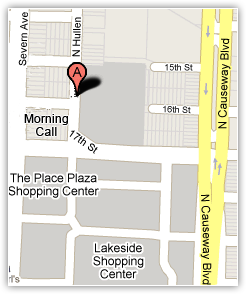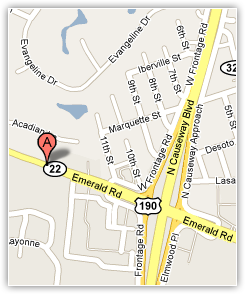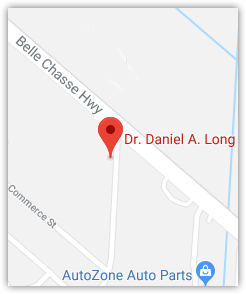Which procedure is better for my particular needs, PRK or LASIK? Although PRK has been used successfully in the past, LASIK is the most advanced laser vision correction procedure and offers some distinct advantages over PRK. First, LASIK offers a more comfortable recovery than PRK. Secondly, vision recovers much quicker with LASIK, with most patients returning to work in one day. Finally, medications are only required for 1 to 2 weeks following LASIK, whereas PRK patients use medications for several months after the procedure. Today, over 95% of the refractive procedures performed at the Caplan Eye Clinic are LASIK.
Is laser vision correction permanent? Yes, laser vision correction results in a permanent change to the shape of the cornea. However, laser vision correction will not prevent age related conditions such as presbyopia (the need for reading glasses) or cataracts. These conditions would still be treated in their normal manner.
What are the long-term effects of laser vision correction? Laser vision correction has been performed since 1987. Over two million procedures have been performed in over 50 countries. The FDA has approved the use of the excimer laser and recognized laser vision correction as being safe and effective for treatment of nearsightedness, farsightedness, and astigmatism in eligible patients.
The FDA clinical trails reveal 100% of patients with mild to moderate myopia who have had laser vision correction achieved significantly improved uncorrected vision.
When can I return to work and normal activities? Most patients have functional vision (drive a car and return to work) within one to three days of the procedure.
What can I expect my vision to be after laser vision correction? As with any surgical procedure, results cannot be guaranteed. In a recent study, 98% of patients treated for nearsightedness and/or astigmatism achieved 20/40 vision or better after one or more treatments. This means that they can drive legally, play sports, and join police or fire departments without depending on corrective eye wear.
Healing responses vary from vary from individual to individual but most people reach stable vision within a few weeks after either procedure, however, minor fluctuations in vision can last longer.
Is laser vision correction painful? There is no pain during the procedure. Eye drops are used to numb the eyes. No needles or shots are required. Patients experience mild discomfort following the procedure; however, medications will be prescribed to alleviate any discomfort during this period. Light sensitivity, watery eyes, and lid swelling are common for a few days after the procedure. With LASIK, post-operative discomfort is minimal.
Are both eyes treated the same day? Most patients who undergo laser vision correction have the procedure on both eyes the same day; however, the procedure can be performed unilaterally as well.
What are the risks of laser vision correction? No surgical procedure is without risks. Long term sight-threatening complications from PRK and LASIK are very uncommon. The chance of having a serious vision threatening complication is much less than 1%. Understanding potential risks allows you to make an informed decision before undergoing laser vision correction. Our office will discuss potential risks in greater detail and answer any questions you may have during your screening.
How do I determine if I am a candidate for laser vision correction? Schedule a complimentary laser vision correction screening at our office or attend one of our free LASIK consultation. During the consultation we will determine candidacy and which procedure would offer the greatest benefit for particular needs.
How long does it take to perform the procedure? The actual laser time is typically less than two minutes per eye. A person will be in the laser room for only 15 to 30 minutes for the actual procedure. The total time spent in the laser center is generally one to two hours. Most people are on their way 20 to 30 minutes following the procedure.
Can laser vision correction get rid of reading glasses? Yes and no. The need for reading glasses usually begins at age 40 to 45, and is caused by a loss of elasticity of the natural lens inside the eye. This loss of elasticity results in an inability to focus on small print or objects at near. This condition is called presbyopia.
Laser vision correction cannot restore the elasticity to the natural lens inside the eye. However, there is a technique that is commonly used with contact lenses called monovision in which one eye is fit with a contact lens to see at a distance and the other eye is fit with a contact lens to see at near. This technique can also be used with laser vision correction. One eye would be treated to see at a distance and the other eye would be treated to see at near.
Prior to using the laser for this technique it is recommended that contact lenses be tried first. If successful then the same technique could be applied with the laser.
If both eyes are treated for distance vision then more than likely between the age of 40 to 45 reading glasses will become necessary in order to focus on near objects.
Does insurance cover laser vision correction? Generally laser vision correction is considered elective and is not offered by many health insurance plans. Our staff will be happy to call your insurance carrier to determine if laser vision correction is an included benefit.
Is there financing available? Yes, our office provides monthly payment plans that make laser vision correction easily affordable. To apply for financing, complete our on-line financing application.

















